EUDIS Defence Hackathons are awareness and outreach events that help to develop innovative solutions for EU defence actors and bring together people with different expertise and background to solve defence challenges.
They are an excellent opportunity to attract highly skilled individuals and early start-up businesses to the defence sector and match end-users with industry.
What is a hackathon?
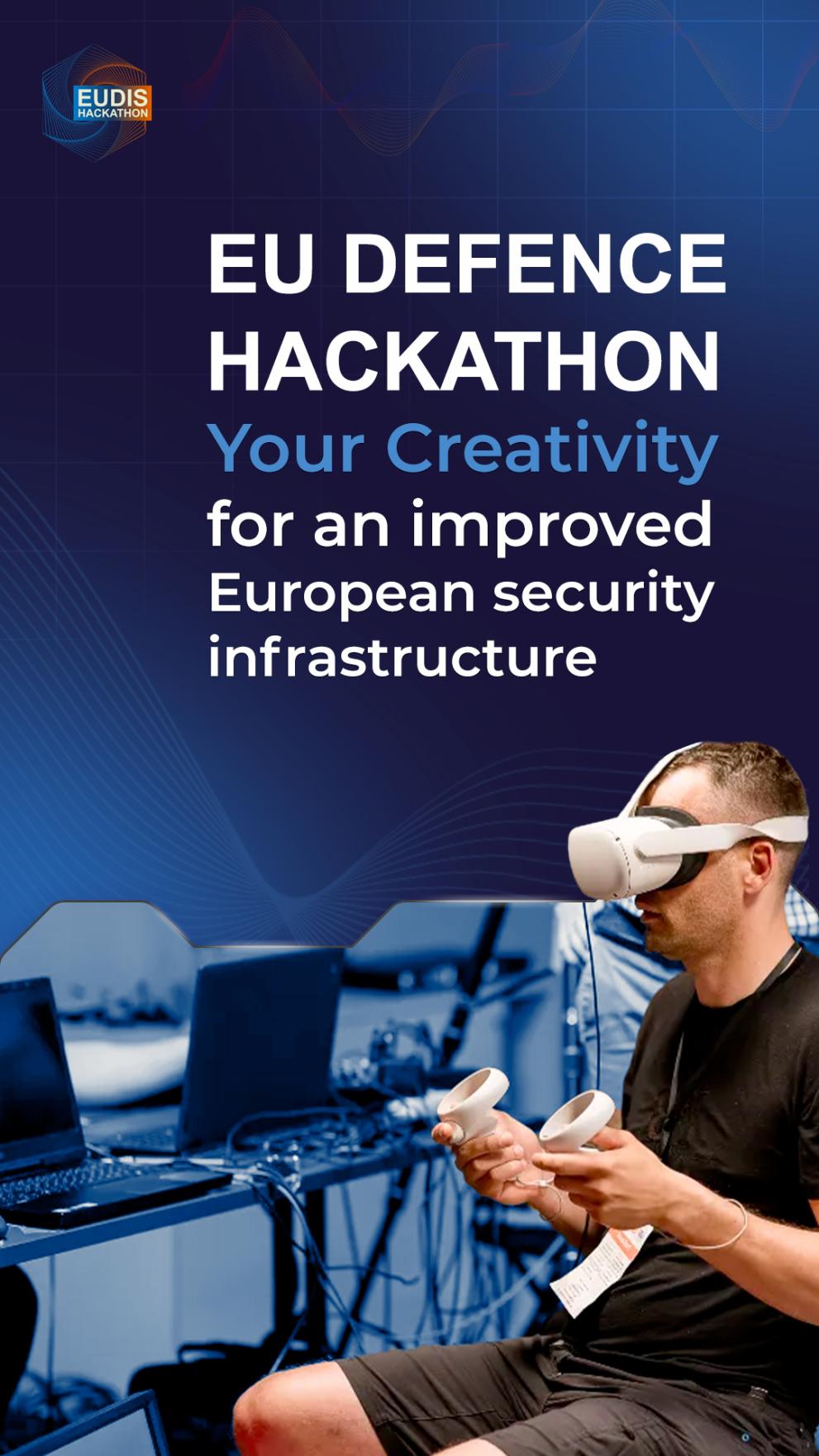
A hackathon is an idea-sprint event where individuals come together, form teams and collaboratively build a unique solution to a problem from scratch, in a limited time. Hackathons will be held simultaneously in several locations in EU/Norway.
These events aim at solving challenges and problems for military end-users with clear solutions. They connect young STEM researchers with defence industrial entrepreneurs and military end-users. They attract young innovators and help them to discover innovative solutions for defence capability and technology needs. Hackathons usually serve as an excellent awareness-raising occasion to promote skills and opportunities for the defence industry.
- Use your ideas and solutions to solve a challenge
- Receive professional feedback and mentoring during the hackathon event
- Experience a stimulating, creative, and co-operative learning environment
- Compete in EU/Norway-wide simultaneous events in several locations
- Benefit from an attractive follow-up mentoring program for winners
Rewards & Benefits
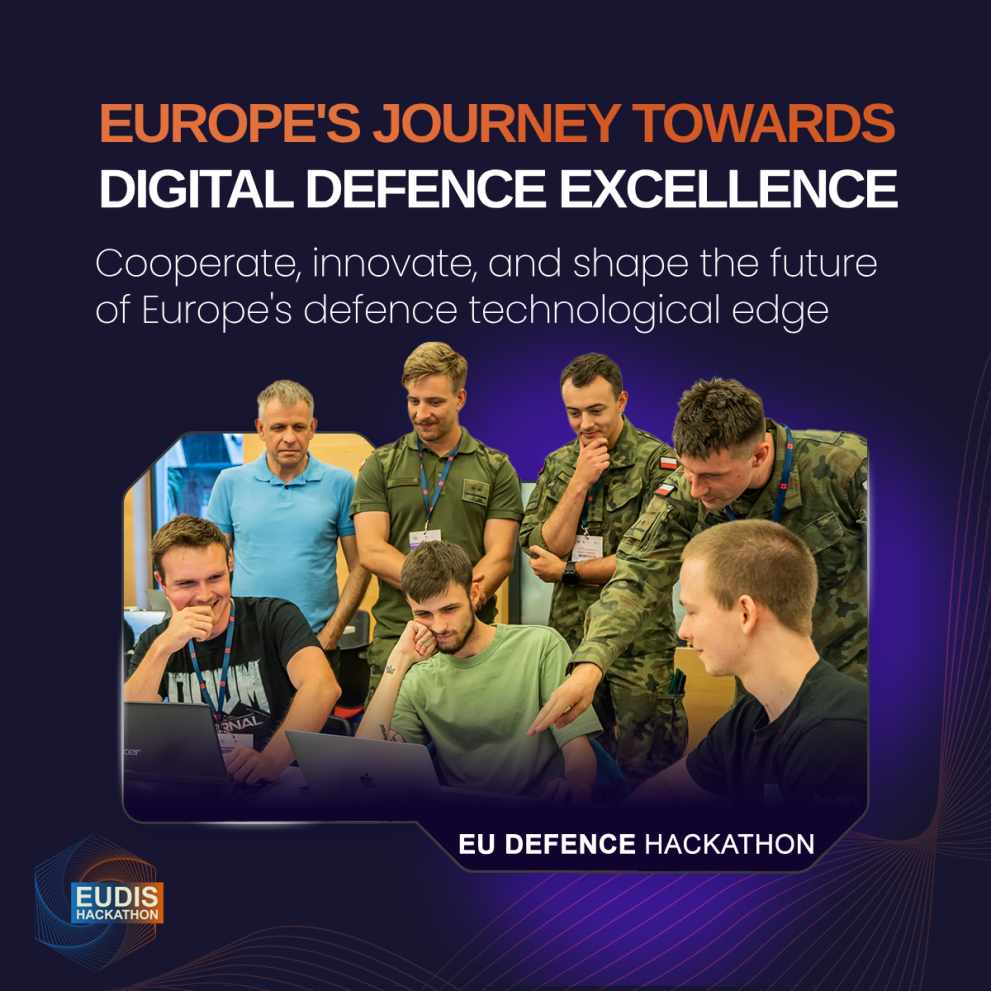
Individuals form teams to participate in hackathons. Hackathons challenge the teams’ novel ideas in a competitive and co-operative learning environment.
The winning teams receive awards, such as a follow-up mentoring program, designed to help them advance the development of their solutions. Therefore, hackathons can speed-up the development cycle of SMEs or start-ups.
Broadly, hackathons offer SMEs, start-ups, and researchers an exciting opportunity to learn more about defence and enter this sector. It also helps existing defence start-ups to find new ways for cooperation and connection with military end-users.
2025 EUDIS Hackathons
During the second edition of EUDIS Defence Hackathon, participants had the chance to innovate, co-operate, and compete for prestigious EU-level awards and regional prizes and awards. Furthermore, they pushed the boundaries of defence innovation and made a lasting impact on Europe’s defence, security, and technological advancements.
Autumn Edition
As space is a key enabler for defence and an increasingly contested domain, ensuring control and resilience across space domain is critical. This hackathon theme explores how the European space ecosystem can support defence missions and operations and contribute to a secure space domain – including through artificial intelligence, more autonomous and secured systems, innovative solutions for data collection and processing.
The theme is subdivided into three challenges which shall be supported with ‘hackathon/makeathon’ capabilities by local organisers to enable rapid development and prototyping whenever possible. The challenges are:
- Protection of space assets – detect, analyse and counter threats in space
- Space for defence – Earth Observation, Navigation, Communication, and coordination of multi-domain military operations
- Sovereign Aerospace – Unmanned Aerial Vehicles, Management, Production, and Countermeasures
Winners Autumn edition
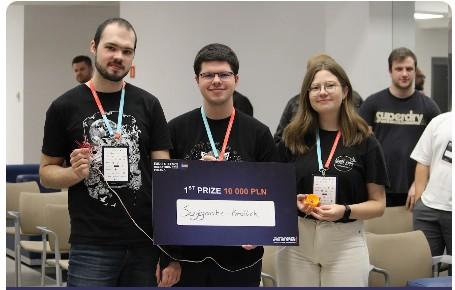 Sajgonki – Poland
Sajgonki – PolandChallenge addressed
Sovereign Aerospace
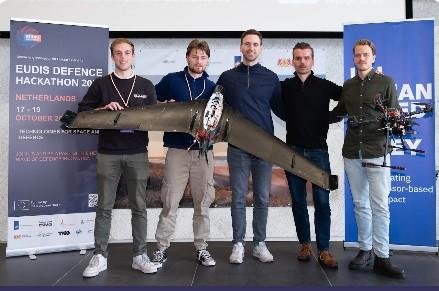 Trusk Tech – The Netherlands
Trusk Tech – The NetherlandsChallenge addressed
Sovereign Aerospace
 Raid – Portugal
Raid – PortugalChallenge addressed
Sovereign Aerospace
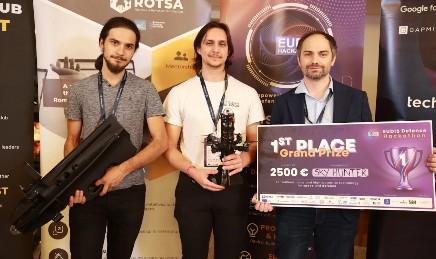 SkyHunter – Romania
SkyHunter – RomaniaChallenge addressed
Sovereign Aerospace
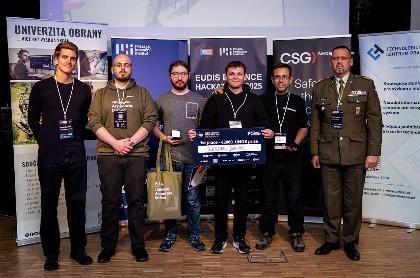 Kestrel Defence – Czech Republic
Kestrel Defence – Czech RepublicChallenge addressed
Sovereign Aerospace
 True Sight – Italy
True Sight – ItalyChallenge addressed
Sovereign Aerospace
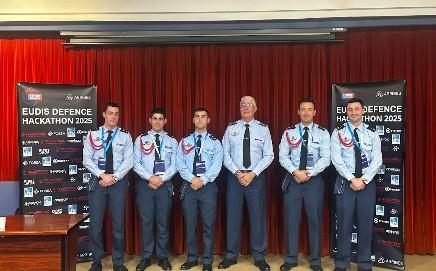 Eurolynx - Spain
Eurolynx - SpainChallenge addressed
Space for Defence
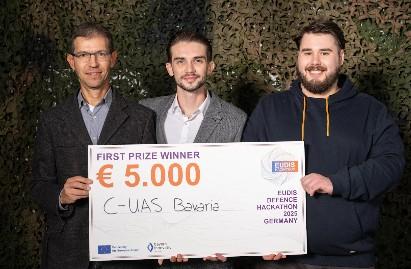 C-UAS BAVARIA – Germany
C-UAS BAVARIA – GermanyChallenge addressed
Sovereign Aerospace
The Spring Edition of the EUDIS hackathon, which took place on 9-11 May 2025, focused on creating innovative hardware and software solutions tailored to the urgent needs of the Ukrainian battlefield and similar operational contexts. It brought together 478 participants and 64 mentors and experts. The events ended with winners announced on the 11th of May, as a part of enhancing Europe's defence innovation landscape. The hackathons also provided substantial networking and collaboration opportunities among EU27 and Norwegian participants.
The EUDIS Hackathon 2025 - Spring Edition - focused on three pivotal areas that are crucial for the future of European defence:
- Enhanced Situational Awareness and Tactical Surveillance Systems
- Cost-Effective Protective Gear for Frontline Defence
- Advanced Medical Support for Frontline Care
2024 EUDIS Hackathon
The first EUDIS Defence Hackathon, themed ‘Digital in Defence’, was held from 31 May to 2 June 2024. It brought together 6 visionary hosts from Belgium, Greece, Hungary, Italy, Lithuania, and Poland, 275 participants from 16 countries, 79 mentors and experts, and 6 winning teams. In just 48 hours, this unique initiative sparked the creation of 70 cutting-edge ideas and innovative solutions in the defence sector.
The event focused on enhancing Europe’s defence capabilities in three challenge areas: Subsea Infrastructure Protection, Improving Situational Awareness, and Cybersecurity in Defence.
More insights and stories are available on the dedicated EUDIS Hackathon website
Winners
The teams Eunify, Superlabs and Aquahub emerged as the top 3 teams, benefiting from an expert mentor programme gaining valuable skills in the defence area, team management, intellectual property protection, and pitching their ideas to defence companies and potential investors.
Testimonials
"Through EUDIS, we have cultivated an environment that encourages collaboration, critical thinking, and technical excellence. The hackathon teams have not only showcased their skills but have also demonstrated remarkable teamwork and resilience under pressure. It is a joy to guide them, provide insights, and witness their growth throughout the process."
Aquahub Team, Karol (Poland) - Undergraduate at University of Manchester, School of Physics and Astronomy
"One “free” weekend turned into an amazing future-changing experience for us. During the Hackathon, not only did we meet new international friends, we also started building professional relationships and learnt a lot about innovation and the Defence industry in a very pleasant hands-on manner. The mentorship programme and the coaches really help in making our invented solution a reality and in founding a Defence start-up company. It’s well-balanced and covers a lot of business school topics."
EUnify Team, Dieter Lambrecht (Belgium)
"Being a mentor for the EUDIS Hackathons has been an incredibly rewarding experience. The energy and enthusiasm of the teams are contagious, and their dedication to learning and innovation is truly inspiring. Watching these talented individuals collaborate, problem-solve, and push boundaries has reaffirmed my belief in the power of collective creativity and determination. The EUDIS Hackathons are not just a platform for innovation; they are a testament to the potential of passionate minds working together towards a common goal."
Ivo Remmelg, Angel investor, Start-up mentor
In the 2025 edition, citizens of any EU Member State, Norway or Ukraine, residing in these countries and aged 18 or older, are welcome to join the EUDIS Defence Hackathon.
Participants are to form a team to participate in hackathons. The composition of the teams can be diverse/varied, for example: university students, researchers, entrepreneurs, military personnel, or employees or larger companies.
Hackathon themes and challenges are decided by the Commission in cooperation with Member States and Norway, as well as the EDA and HEDI.
They will take place in a central hub and in multiple locations at the same time across the EU/Norway.
On 4 December 2024, an open call was launched by the contractor, where interested entities can apply as local hackathon organisers. More information will be available on the EUDIS Hackathon platform.
For the EDF Work Programme 2024, the indicative budget for the 2025 organisation of hackathon and mentoring is EUR 1 200 000. This year’s budget will cover a defence specific EUDIS hackathon in Spring 2025 and a joint defence and space (EUDIS/CASSINI) hackathon in Autumn/Winter 2025.
The winners of the hackathons are awarded mentoring programs.
Local organisers can on a voluntary basis issue their own prizes, which are not part of the Commission budget or procurement.
The next EUDIS Hackathon will take place on 9-11 May 2025.
The winning teams receive awards, such as a follow-up mentoring program, designed to help to advance the development of their solutions. This can result in development of their business ideas and prototypes, creation of start-ups that may contribute to EU Member States’ or Norway’s defence capabilities. Hackathons can also attract talents to the defence sector.
The hackathon results generated by the teams/participants are owned by the hackathon teams/participants themselves.


